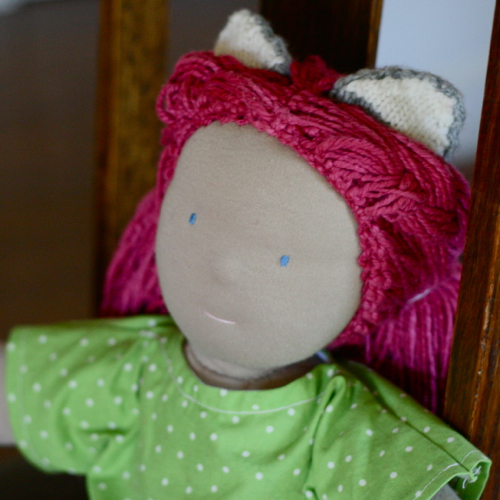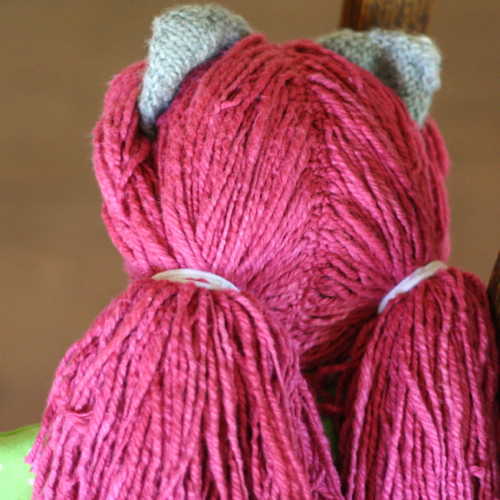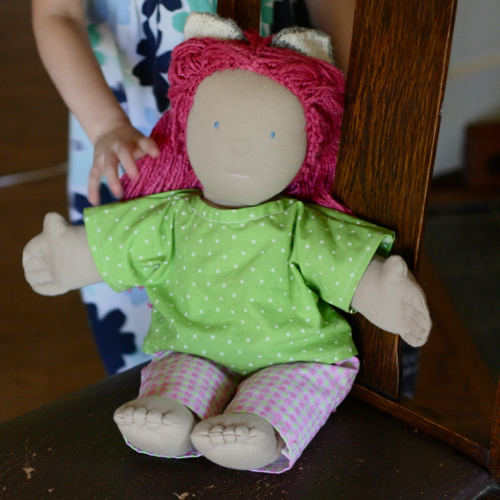December 31, 2011 will be the last day toys can legally be sold in the United States unless they undergo mandatory ASTM F963 testing. ASTM F963 testing must be performed by an independent lab and is used to determine if a toy is safe for children to play with: seams are sound, no flammability issues, little fingers can’t poke into holes, the toy doesn’t shatter into a million sharp pieces when it’s dropped. This sounds like a great idea. Safety first, right?
If you are a large company, and your toys are stamped out with a machine by the thousands at the cost of about $1.50 a toy, this is not a big deal. If you are a small toymaker who spends hours on a single stuffed animal, this is the end of your business.
I hand knit soft toys from natural materials. Each toy takes an average 6 hours from start to finish. I have a three year old and precious little time so I produce around 200 stuffed animals a year. My toys aren’t small batch, they are micro batch. My yarn and filling choices (cotton, wool, cashmere, angora, alpaca) are typically organic and often purchased directly from the farmer. Each type of toy is produced with the same techniques and solid construction. Each is produced with my own hands so there is no question about variation in quality or in craftsmanship.
My ‘Cotton Companions’ are available as eleven different types of animal. In order to be in compliance with mandatory ASTM F963 testing, I will be required to submit each animal design (model) for individual testing. If just one copy of each model is required for ASTM F963 testing, I will need to make and send eleven toys. That represents 66 hours of work and about $45 in materials. Add to that testing fees of $500 per toy – $5,500 in testing fees for the eleven Cotton Companions. That’s more money than Yarn Miracle makes in a year. If more than one copy of each model is required for testing, the cost in my time alone is absolutely overwhelming. Lab testing can require as many as ten copies of a model. For the Cotton Companions that is 110 toys – more than half my annual production!
I also have six designs for larger toys, make eleven styles of Itty Bitty Animals and at least a dozen varieties of Itty Bitty Birdies. To test every design in my shop would cost a total of $19,500 in testing fees, 160 hours of knitting time and I haven’t even done the math for materials cost – and that’s only to submit a single copy of each toy design.
For my ‘luxury’ companions, I use handspun yarns, hand dyed yarns, special blends of fiber and cashmere. If each fiber type needs to be tested, that’s more than a dozen additional toys and a staggering materials cost. Many of the luxury toys are one of a kind. To send a one of a kind toy in for ASTM F963 testing would leave me with no toy to sell!
Not only is ASTM F963 testing ‘overburdensome’, it is impossible. Impossible not just for me, but for every other small toy manufacturer in the United States. There will be no more hand made blocks, no wooden teethers, no waldorf dolls, no bendy dolls, no more made-to-order plush monsters, no more unique, no more original, no more handmade toys with exemplary safety records. But the big toy companies, whose negligence sparked this law, will be just fine. In an already damaged economy, mandatory ASTM F963 testing means the end of even more jobs.
There is a CPSC hearing on October 26 to determine if there should be alternative testing requirements or exemptions for handmade toys. The Handmade Toy Alliance will be there to lobby on behalf of small batch manufacturers. Here’s how you can help:
Write your Senator.
Write your Representative.
Every email makes a difference. Every letter shows the public cares about what happens to the people who make handmade toys.
If you feel inclined: join or donate to the Handmade Toy Alliance.
Buy handmade for the holidays. It may be your last chance.



